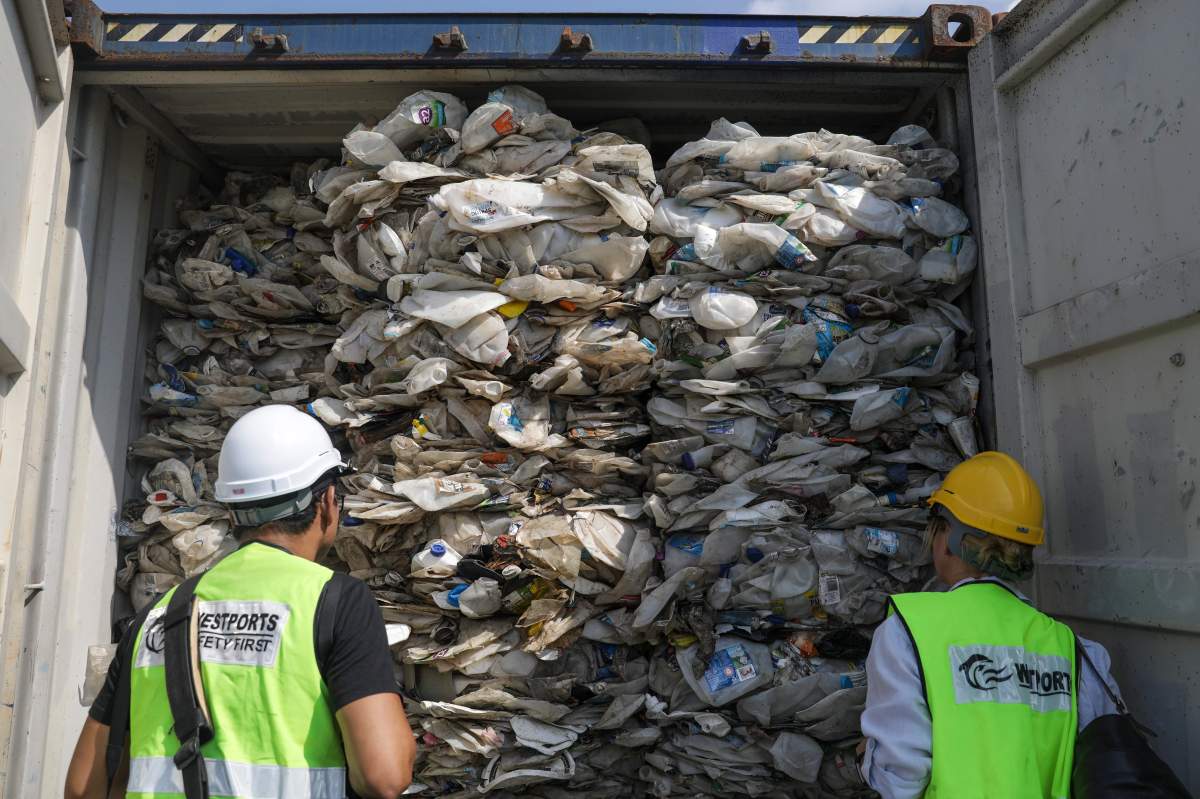Malaysia will send back some 3,000 metric tons of non-recyclable plastic waste to countries such as the U.S., U.K., Canada and Australia in a move to avoid becoming a dumping ground for rich nations, Environment Minister Yeo Bee Yin said Tuesday.

Yeo said Malaysia and many developing countries have become new targets after China banned the import of plastic waste last year.
Last week, the Philippines said it would ship back dozens of containers of garbage which Filipino officials were illegally shipped to the country from Canada in 2013 to 2014.
WATCH: Freeland unaware of Canadian trash shipped to Malaysia, working with Philippines to resolve dispute

Yeo said 60 containers stacked with contaminated waste were smuggled in en route to illegal processing facilities in Malaysia and will be sent back to their countries of origin.
Ten of the containers are due to be shipped back within two weeks, she said, as she showed reporters contents of the waste at a port outside Kuala Lumpur.
WATCH: ‘We will declare war’ against Canada over dumped garbage, Philippines’ Duterte says

The displayed items included cables from the U.K., contaminated milk cartons from Australia and compact discs from Bangladesh, as well as bales of electronic and household waste from the U.S., Canada, Japan, Saudi Arabia and China. Yeo said the waste from China appeared to be garbage from France and other countries that had been rerouted after a ban imposed by China.

Get daily National news
In one case alone, Yeo said a U.K. recycling company exported more than 50,000 metric tons (55,000 tons) of plastic waste in about 1,000 containers to Malaysia over the past two years.
WATCH: Malaysia now also sending back Canadian garbage

“This is probably just the tip of the iceberg (due) to the banning of plastic waste by China,” Yeo told a news conference. “Malaysia will not be a dumping ground to the world … we will fight back. Even though we are a small country, we can’t be bullied by developed countries.”
The government has clamped down on dozens of illegal plastic recycling facilities that had mushroomed across the country, shuttering more than 150 plants since last July. Earlier this month, the government also sent back five containers of waste to Spain.
Yeo said China’s plastic waste ban had “opened up the eyes of the world to see that we have a huge garbage and recycling problem.”
Philippines President Rodrigo Duterte has threatened to forcibly ship back dozens of containers of garbage to Canada and his government recalled its ambassador and consuls in Canada over Ottawa’s failure to comply with a May 15 deadline to take back the garbage.
Canadian Environment Minister Catherine McKenna said the Canadian government had awarded a contract to French shipping giant Bollore Logistics Canada that calls for the return of 69 containers filled with household waste and electronic garbage to Canada by the end of June.
The Philippines, however, rejected Canada’s plan. Presidential spokesman Salvador Panelo said the government will proceed with a plan to look for a private shipping company to rapidly transport the garbage to Canadian territory.
Philippine officials were assessing separate shipments from Hong Kong and Australia which environmental activists said allegedly contained garbage and should be sent back to their points of origin.
In Port Klang, Yeo said citizens in rich nations diligently separate their waste for recycling, but the garbage ended up being dumped in developing nations where they are recycled illegally, causing environmental and health hazards, she said.
“We urge the developed countries to review their management of plastic waste and stop shipping the garbage out to the developing countries,” she said, calling such practices “unfair and uncivilized.”
Yeo vowed to take action against Malaysian companies illegally importing used plastic, calling them “traitors to the country’s sustainability.”








Comments
Want to discuss? Please read our Commenting Policy first.